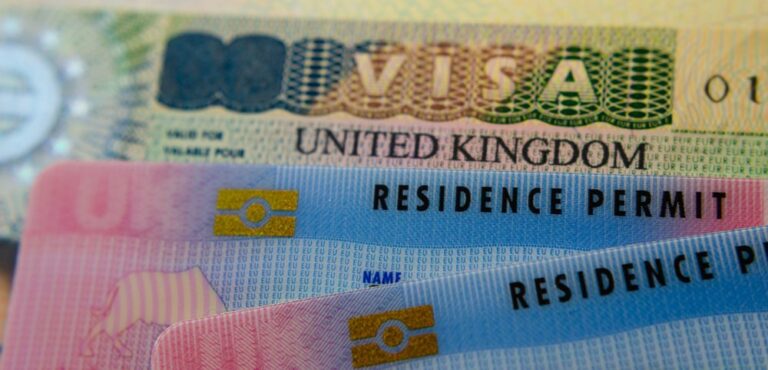Have you worked as a ‘self-employed’ worker for someone for a long time? You could be due thousands of pounds in backdated holiday pay.

23.02.2022
Introduction
Thanks to a recent ground-breaking Court of Appeal (CoA) ruling in Smith v Pimlico Plumbers Ltd, workers can now carry over four weeks of annual leave that they took but were not paid for because his employer didn’t recognise him as a worker. Even better, this can be retroactively applied to the start of your employment.
This has created a significant window of opportunity for self-employed workers to seek compensation for used, but unpaid annual leave. If you can establish yourself as a worker, you’ll have access to many legal rights, including the right to years of backdated holiday pay.
Background to holiday pay
Under the Working Time Regulations 1998, workers are entitled to 5.6 weeks paid annual leave. Four of these weeks are mandated by the EU Working Time Directive (EU Leave). The holiday mandated by the EU Working Time Directive is typically not allowed to be carried over. The other 1.6 weeks provided under Regulation 13A is separate from EU law, thus are subject to different rules.
Despite these considerations, the CoA ruling has no impact on the remaining 1.6 weeks of holiday that can be carried over to the next holiday year, only if a work arrangement permits this. If this portion of holiday allowance is not taken; it will be lost. Even if it was taken, but not paid, unfortunately, the ruling does not cover this element.
What happened in Smith v Pimlico Plumbers Ltd?
Mr Smith had worked for Pimlico Plumbers Ltd for five years and was never paid for his vacation time, even though he was authorised and allowed to take it. The ruling allowed Mr Smith to claim backdated holiday pay for the four weeks of annual leave accumulated each year during the term of his employment (totalling 20 weeks), which the EU Working Time Directive mandates. If you have taken any holiday and was not paid for this time off – this ruling is significant, that works in your favour and will surely be used as precedent to support your claim.
Some indicators that suggest you have been wrongly classified as ‘self-employed’.
To make a successful backdated holiday pay, the first hurdle to overcome is to establish yourself as an employee rather than your current self-employed title. These indicators should help you find the right path. If you satisfy the below checklist on multiple accounts, you may be able to establish yourself as an employee:
- You’re told what to do and set a deadline for completion;
- You’re told how to carry out your role;
- You have regular hours;
- You’re paid regularly – this could be weekly, bi-weekly or monthly;
- You’re unable to send replacement workers to complete the tasks you’re assigned;
- The company provides the equipment or tools required to carry out your role;
- You’re told where to work.
It’s important to note that these are merely indicators; however, the more that apply to you, the more likely you are to establish yourself as an employee.
It doesn’t matter if the contract you signed is in violation of these indicators; what matters is the reality of your working situation. This was demonstrated in the case of Autoclenz Ltd v Belcher, in which the workers signed a contract implying that they were self-employed, but the reality was quite different. This was upheld by the Court of Appeal, and the Supreme Court later confirmed it.
The next step
If you want to establish yourself as a worker rather than a self-employed worker, the next step is to figure out how much vacation time you took while working for the company. This will be the basis for determining how much you can claim. It’ll be a maximum of four weeks of vacation per year (EU vacation), multiplied by the number of years you’ve worked for the company. Unfortunately, only if a company policy allows it, the remaining 1.6 weeks can be carried over, so this is unlikely to be included in a claim against your employer.
Note – this part is very important. Unfortunately, there are time limits as to when an employee is able to bring a claim for unpaid holiday wages against their employer – this is currently set at 3 months. Therefore, a claim must be brought within this time.
If the company has not proactively promoted and encouraged workers to take paid, holiday leave, they expose themselves to claims from employees. The case of King v Sash Window Workshop ltd illustrates this. Here, the claimant had never been offered paid holiday, nor did he ever assert his right to paid holiday. Consequently, the claimant was able to recover payment of untaken accrued holiday, backdating 13 years of holiday entitlement throughout his employment: a claim of approximately £27,000. This case was used in the judgment in Smith v Pimlico Plumbers.
Summary
It’s critical to note that the current trend is working against employers. This makes now, more than ever, the best time to act. This will form the basis of your claim if you took any vacation time during your time with the company and were not paid for it. It is crucial to establish yourself first as an employee to be able to make a successful claim.
If you think this applies to you, please do not hesitate to get in contact with our employment department here at Sterling Law. Our contact information is listed below.
T: 0207 822 8535







